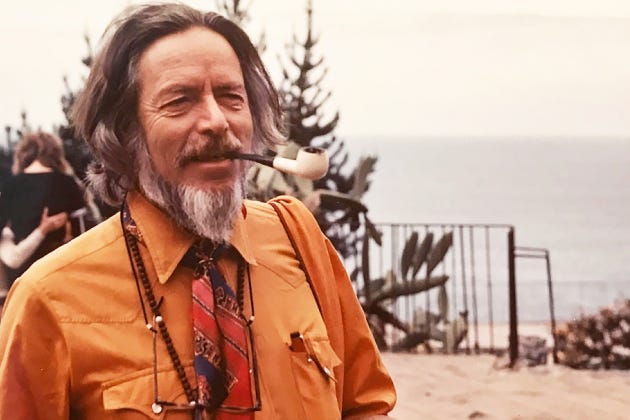
Alan Watts once said:
“Part of the secret of life is knowing how to laugh and how to breathe.”
I’m not sure if he knew how accurate he was being but there is a bunch of scientific evidence that supports his claim.
The Secret of Laughing
The secret of laughing is intuitive. It just makes us feel good. It’s like eating chocolate cake, reading a good book, or making love.
I could stop there and you’d be fine. However, there is some fascinating science that now shows why it feels so good.
Laughing, for example, activates the vagus nerve which is the main component of the parasympathetic nervous system (PNS).
The parasympathetic nervous system is better known for helping us rest and digest. It does this by slowing down the heart, steadying the breath, smoothing digestion, improving recovery and healing times, producing saliva, releasing endorphins and hormones such as dopamine, oxytocin, and serotonin, and boosting the immune and cardiovascular systems.
The vagus nerve makes up three-quarters of the PNS as it travels from the brainstem to the gut, passing through the tongue, throat, neck, heart, lungs, diaphragm, and abdomen. Along the way, it delivers vital information to most of the body’s essential organs while also reducing inflammation and helping us feel calm, relaxed, and at ease.
So, take time to create some joy and happiness in your life today. Maybe that means grabbing a book, listening to a podcast, watching a movie, socialising with friends, or participating in a laughing yoga class. It doesn’t what the form looks like as long as it makes you laugh, smile, and have a good time.
Because as Alan Watts brilliantly said:
“Man suffers only because he takes seriously what the gods made for fun.”
The Secret of Breathing
The secret of laughing may be intuitive but the secret of breathing is a little more unknown. So, why did Alan Watts say it’s a key part of the secret of life?
“Breathing is important in the practice of meditation because it is the faculty in us that is simultaneously voluntary and involuntary.” — Alan Watts
In other words, it’s something that will happen by itself or can be controlled and directed by us. This is important because when it’s controlled in specific ways the benefits of breathing can be enormous.
To understand why, let’s look at it from the other way around.
High levels of anxiety, for example, often make the breath shorter and sharper. This signals to the body that it’s in a state of stress so it produces hormones like adrenaline and cortisol that get it ready for action. These hormones are great in stressful situations because they can get us to safety. However, when they’re produced too often, they can create inflammation, fatigue, and poor digestion while breaking the immune system down.
Mouth breathing is another example.
The short-term effects associated with mouth breathing vary from dry mouth, bad breath, tiredness, brain fog, poor digestion, poor sleep, snoring, sleep apnea (holding the breath while sleeping), blocked sinuses, allergies, and high stress and anxiety levels. However, the long-term side effects are somewhat more concerning. They range from depression, inflammation, hypertension, and chronic fatigue. Even heart attacks have been reported as a known cause.
This is because when the body is in a state of stress for long periods of time it begins to break down. It happens slowly at first but then quickly accelerates and compounds.
Luckily, the solution is simple. So, here is my winning formula for healthy breathing habits:
Breathe through your nose
Breathe calm, smooth breaths down into your belly
Breathe less
This will generate feelings of peace as it begins to regulate your nervous system, heart, brain, and digestion, along with producing hormones that make you feel happy and connected.
To go one step further, you can practice my favourite kind of breathwork here. It’s what I’ve been doing for the last five years and it’s completely changed my life.
One of the reasons why I love Alan Watts is that he keeps it simple.
The secret of life is just to laugh and breathe. All the rest is a bonus.
“The meaning of life is just to be alive. It is so plain and so obvious and so simple. And yet, everybody rushes around in a great panic as if it were necessary to achieve something beyond themselves.” — Alan Watts


